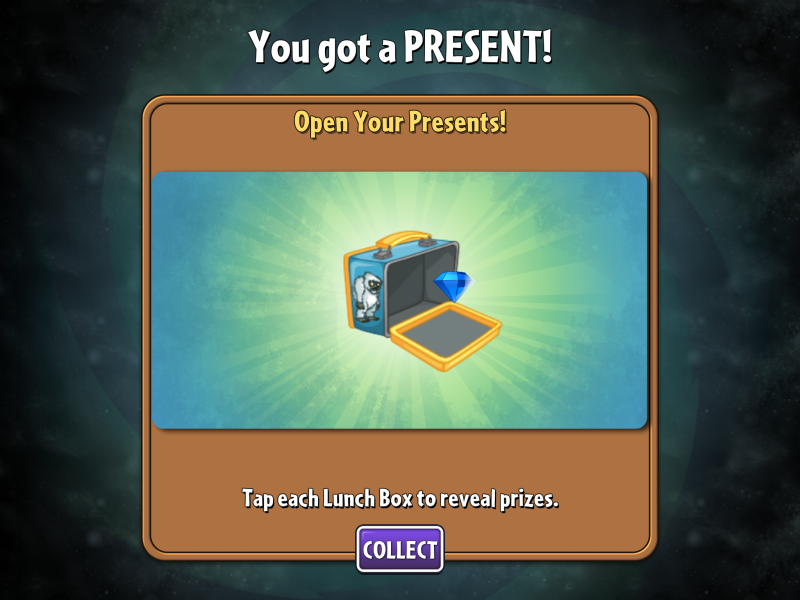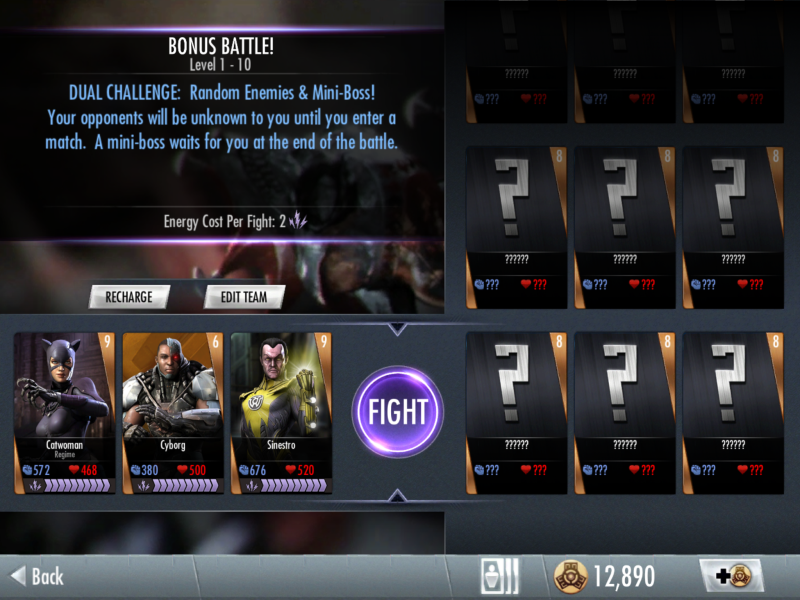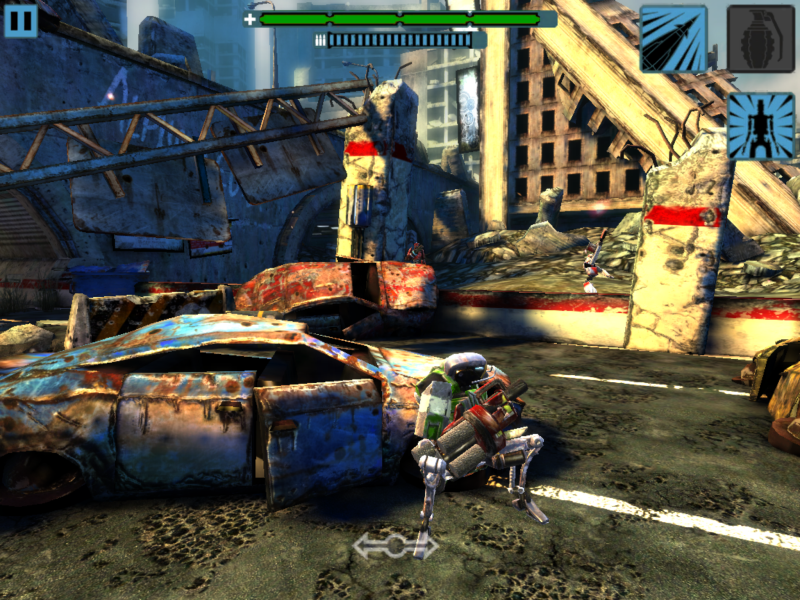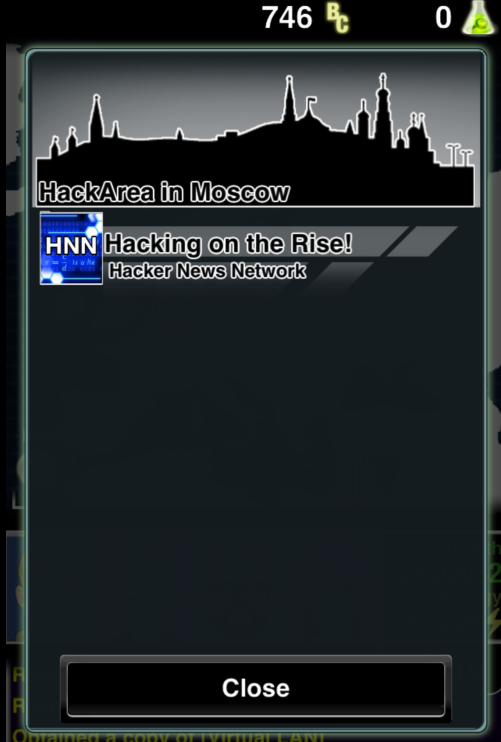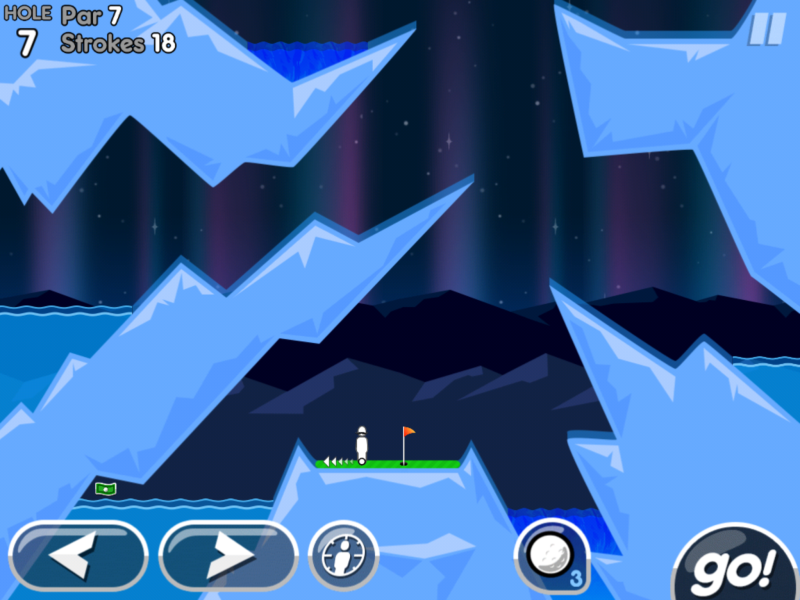Infinity Blade is pretty much a medieval/sci-fi version of Punch-Out. Depending of your equipped weapon, you have different options of blocking, dodging or parrying. Between fights, you gather materials, gold bags and other items, you get experience and can level up, gaining skill points to place between health, shields, attack and magic, your gear also gains experience until it levels up and grants you more skill points. You can slot gems in certain equipment pieces, you can brew potions, upgrade your mastered gear, and much more. Even with all that, there's plenty I don't like in this game.
Puzzle and Dragons is insanely successful, it seems. I've decided to try it out as soon as it went live on the Canadian app store, and my god, it is a load of nonsense. The core mechanic of the game (moving gems on a board) manages to be mostly luck-based and somehow less refined than old match-3 games and/or Tetris Attack and/or puzzle quest managed to do years ago. The monster collection part is also completely nonsensical and random but at the same time, vital to progress through the game.
I didn't "get" 868-Hack, a popular videogame where you datajack into the cell cubes to decrypt pointfiles while cyberdodging viruses and shooting them with your datagun. This feels like a roguelike, this feels like a small thing with no rhyme or reason. I can't say I've enjoyed 868-Hack much because I've failed miserably to progress past the first few screens and some mechanics are still incomprehensible to me.
Rymdkapsel is a weird real time strategy game where you control a bunch of little white rectangles. You basically don't control them, you only assign what you want them to do (and you can select rooms you'd prefer they build first) but then they do their own thing, leaving you with less to do than watch. Always on a timer of imminent attack with three resource types to jungle, I thought it was an interesting, but not deep enough, little game.
SolForge is a trading card game that would be tough to make in real life. A bit like Scrolls, it uses counters (you increase and decrease stats permanently quite often in this game, compared to Magic: The Gathering where creatures don't keep their life totals dynamic every turn) and a grid-like playing field. There's an interesting level-up system where cards you play can come back as leveled-up versions of themselves after a few turn, making you pick the cards you want to evolve over the ones that are useful right then. Ultimately, I find it light in content and without reasons to play it before future updates.
Here is a nice paragraph. Plants vs Zombies 2 is an incredibly polished, well-made game that builds upon its predecessor with new zombies, new plants, new level types, a map-based progression system that allows you to unlock upgrades in the order you want, power-ups and boosts to help you defeat difficult challenges, endless maps to try and tackle and the same addictive gameplay that made PvZ so good. All of this, and more, if you're willing to stomach tons of f2p Junk.
Beat Sneak Bandit is a rhythm stealth game where you need to tap the screen following a beat to move around environments filled with various devices and traps. The goal of each level is to get a clock with a red flag on top of it, but getting a bunch of optional clocks unlocks additional challenging levels and getting everything in each stage is the biggest difficulty.
Joe Danger on iOS is really great, it's a combo-based score attack game with plenty of objectives, unlockables and mostly good controls. I've never played the console version and I bet it's really similar, but it works on other devices just as well. The new daily challenges they've added might also give players a good reason to play the game everyday and you can enjoy all of its content without buying any IAP.
Knights of Pen and Paper is a turn-based RPG with a twist that makes you the players of a pen and paper tabletop RPG. Mixing story beats and concepts from the real world and a fantasy world, it's an addictive little game with very few issues that I played for a bunch of hours, broken here and there by technical issues that had me redo entire quest lines.
Quadropus Rampage is a mix of roguelike and hack-and-slash systems with some deep customization options, upgrade paths, random loot and good replay value that ultimately is held down by some unwieldy controls and a few spots of confusion here and there.
Kingdom Rush: Frontiers is an amusing tower defense game with enough customization options and neat little gameplay elements that makes it worth the 3.99$ price tag but also tries to catch IAP money through some other means that I can't say I care much about.
BattleStone is an action-rpg type of game where you move a character around to accomplish quests that often are simply to kill things using swiping motions and special powers that fill up over time. You can rack up combos by keeping away from the enemies's attacks and get gold that way. That being said, a bad camera and aggressive free to play design makes it difficult to get into.
Healer: A Light In The Darkness said it was going to make me the healer in a World of Warcraft-like raid. One guy, using multiple purchasable skills and different tiers of talents, helping a team of tanks and DPS characters to fight enemies. That sounded like fun! So I went and tried it.
I used to play a game in high school called Motherload. You had a little ship with a drill and you could drill down the earth to find treasures, but it was dangerous. You had to be careful about bumping into the walls and floor, you were overheating constantly and running out of oil was a death sentence.
I don't mind fighting games on the iPad, Infinity Blade proved to me that it's doable and you can have complex, fun fighting systems even with the limited control options. I wondered what kind of game Injustice would be on the iPad, being sure that it couldn't be a port of the hit console mortal kombat-like fighter. I was mostly right, it's not.
I didn't back Star Command when it was on Kickstarter because I rarely back kickstarters, but I decided to give it a shot when it launched on the iPad a few weeks ago and see what kind of space game it was. This game has charm but a few issues that could easily be fixed. Okay, some issues are tougher to crack, especially the crew control, but I'll try to offer some insight on what is wrong with Star Command and what I would do with it.
This game does on-screen virtual buttons in a satisfactory manner, I haven't played many games like that but I found the controls good for an iPad platformer game. You jump with the B button and fire with the A button (and you can drag the A button up to fire upwards) while moving around to dodge enemies and projectiles, jump over pits and collect stars and skulls. There are tons of levels and tons of things to unlock.
Epoch is quite like Infinity Blade. It plays similarly (With simple swipes and touches), has similar mechanics (you level up and buy things to get better) and kinda also looks like it (interface-wise), but I like it all the same! It has some issues that I'm going to get into later on, but is a neat way to spend a few hours getting good stuff and reading about the story.
I feel like there's a trend with iOS games that I'm unsure about. The trend of having subpar core mechanics but really great fluff, random loot, leveling systems, skill trees and collectibles are added to games with weak gameplay loops. Nameless: The Hackers RPG is one of these games, I love everything around it but the main thing you do in it - fighting in turn-based battles - is poor. Also the anime style is not what I'd like in that kind of game but that's not relevant, design-Wise.
I don't have much of an opinion on golf games in general but I've heard good things about Super Stickman Golf 2, so I gave it a shot. It's a very quirky golf game where the stages are setup to make you use your powerups carefully to get good scores. The stuff around the core game - level up system, equipment, challenges - is also pretty neat and difficult and getting everything is taking quite some time.























